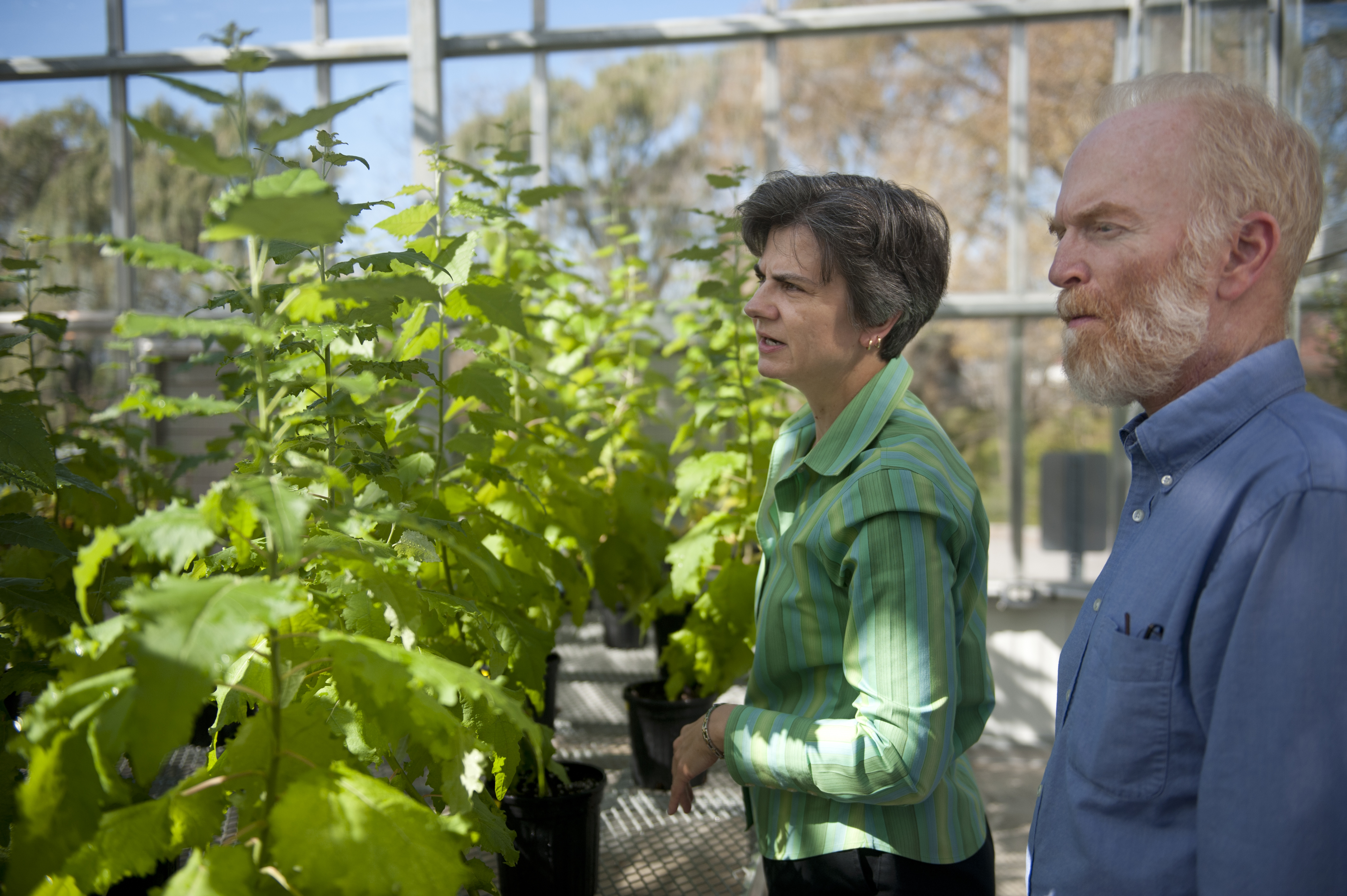Virginia Tech team to investigate the genomics of wood for biofuels production

A team of Virginia Tech researchers is working to characterize the genes involved in wood formation in poplar trees with the goal of improving the quality and quantity of wood as a feedstock for biofuels production.
“This type of genomics research is an important complement to the work of other biofuels researchers who develop better and more efficient ways to process woody biomass for biofuels,” said Eric Beers, professor of horticulture and the lead investigator on the project. “The ultimate goal is to help develop renewable energy and advanced biofuels to provide a more secure future for domestic energy needs and develop new opportunities for our agriculture industry.”
According to Beers, the potential benefits of this research include decreasing oil imports, reducing the use of food crops for ethanol production, and increasing options for American farmers. Because some cultivars of poplar are more tolerant of conditions such as drought and poor soils, they can be grown on marginal lands unsuitable for food crops, thereby avoiding competition with food production. Farmers will thus have the option to grow bioenergy crops in addition to other existing crop choices.
This work is funded by a $1.5 million grant received from the U.S. Department of Energy and the U.S. Department of Agriculture Plant Feedstocks Genomics for Bioenergy Program. Virginia Tech is one of 11 universities that has received funding to conduct research to accelerate bioenergy crop production and spur economic impact. Other plants being studied as possible sources of biofuels or as model organisms to advance the field of biofuels production are switchgrass, Miscanthus, sugarcane, sorghum, and Brachypodium.
This work is a continuation of work begun in 2007 that identified, cloned, and sequenced approximately 400 genes that are associated with wood formation in poplar. These wood-associated genes serve as the foundational resource for the current project, and several have been the subjects of detailed functional analyses during the previous funding period.
Amy Brunner, associate professor of forest research and environmental conservation; Richard Helm, associate professor of biochemistry; and Allan Dickerman, assistant professor at the Virginia Bioinformatics Institute; are co-investigators on the project.
Over the next three years, researchers will identify the key interactions among hundreds of proteins associated with wood formation in poplar. These findings will form the basis for the creation of transgenic poplar plants. The transgenic poplars will be designed to produce higher or lower levels of selected interacting proteins. Chemical, physiological, and molecular analyses of the transgenic trees will be performed to learn more about the basic biology of wood formation and to determine whether such genetic modifications can increase the value of poplar as a biofuels feedstock.

PoplarTreesInGreenhouse1
Virginia Tech researchers Eric Beers, professor of horticulture, and Amy Brunner, associate professor of forest research and environmental conservation, are working to characterize the genes involved in wood formation in poplar trees with the goal of improving the quality and quantity of wood as a feedstock for biofuels production.






